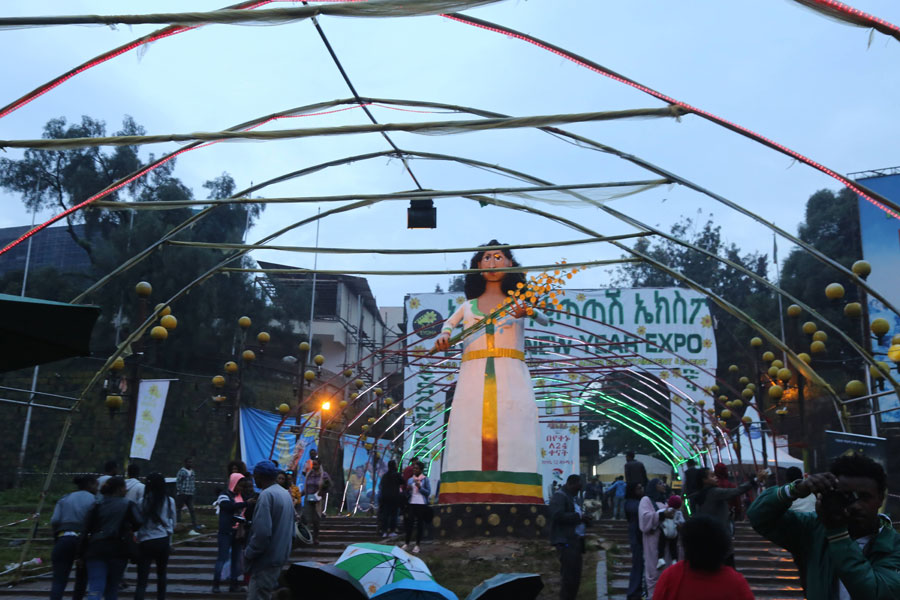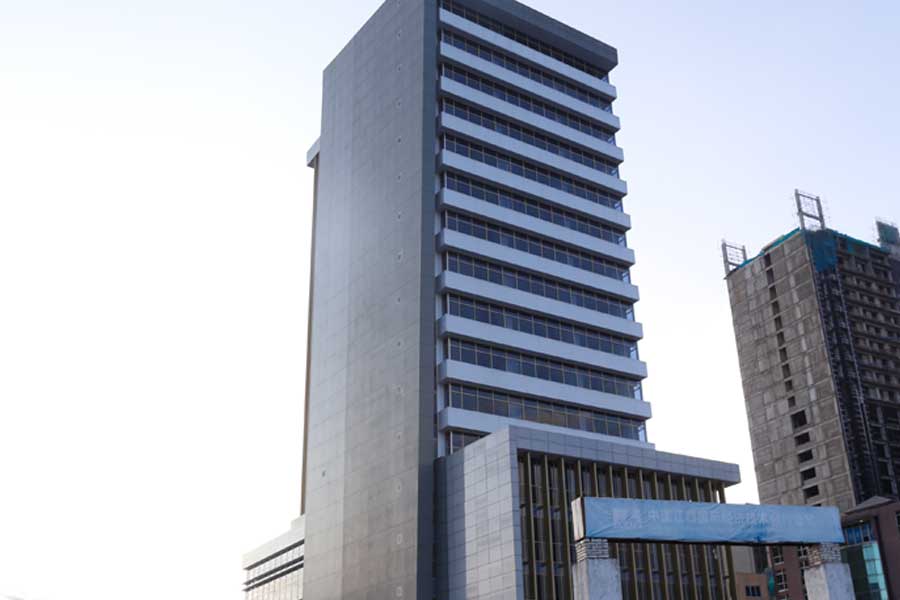
Fortune News | Nov 26,2022
Jun 14 , 2020
By GELILA SAMUEL ( FORTUNE STAFF WRITER
)
South Water Works & Construction Enterprise has secured a contract to construct the Kahild Dijo Irrigation Dam in Silte Zone for 1.2 billion Br.
The Enterprise has been contracted to build the dam in Dalocha Wereda in Southern Nations & Nationalities Peoples' Regional State. Located 200Km away from the capital, the Dam will have a height of 26.5m and a length of 1,875.8m. It will be built on an 1,800ha site and is expected to benefit over 3,200 households.
The Irrigation Development Commission and the Enterprise, which was founded in 1996 and is currently handling 53 irrigation projects, including the projects of Kerib, Rate and Weyto, signed the contractual agreement on June 8, 2020. The Enterprise was awarded the project without any kind of bidding process.
"We're coming up on the end of the fiscal year, so there is a time constraint to issue bidding processes," said Michael Mehari (PhD), commissioner of the Irrigation Development Commission, which allocated 14.3 billion Br for irrigation dam construction this fiscal year.
From the total investment of the project, 94pc is covered by the federal government, 0.2pc by the people of the area, one percent by the watershed communities, and 4.8pc by the regional government.
The engineering part of the Dam is expected to be completed in two years; however, the sectoral work implementation will require 10 years. The project, in addition to irrigating land, will be used to support fisheries, animal husbandry, and the production of other agro-processing inputs.
The project is important since it is instrumental to the cultivation of agricultural inputs that can be supplied as raw material to the Bulbula Agro-Industrial Park, according to Ashenafi Shibire, general manager of the Regional State's Irrigation Development & Scheme Administration Agency.
"It will be an improvement to the development of fisheries and job creation," said Ashenafi.
Currently, the land is under crop cultivation by the farmers at an intensity of 75pc, amounting to 1,347ha. The area's existing farms have created job opportunities for about 421 people, while the project is expected to employ close to 1,304 people. The proposed crops to be grown in the project are maize, wheat, teff, sorghum, fava beans, peppers, tomatoes, carrots, onions, potatoes, cabbage and forage.
The Enterprise will work on the construction of the main body of the Dam including the water-retaining and releasing structures. It will work on the reservoir dam, sluice and outlets, spillways, and the major irrigation canal, as well as irrigation development and drainage elements of the project and water conveying structures, including the water distribution canal system.
"The time frame for this project depends on our construction methodology, and we'll work hard to meet that time frame in a shorter period," said Endale Assefa, department head of planning, communication and change at the Enterprise, which has also been handling water supply development projects, and was contracted to manage the irrigation dam project for the Omo-Kuraz Sugar Factory since 2011.
This project has gone through a redesigning process in order to make it economically viable, according to Michael.
With the original plan, the project would have cost over a million Br for each hectare of the 1,000ha, according to the Commissioner.
"We had to reevaluate the project design," said Michael, "and this is part of the reason why the project has taken time."
The Ethiopian Construction Design & Supervision Works Corporation, which was established in 2015 after the merger of three public enterprises, revised the design of the Dam.
This year, the Commission awarded four projects worth over eight billion Birr including the Kaza Irrigation Dam in western Tigray Regional State for 4.3 billion Br.
Gidabo Irrigation Dam Project, which sprawls on 13,000ha, is underway in Oromia and SNNP regional states. The dam structure of the project is completed and the construction of the canal system is underway.
The total irrigated area so far is less than eight percent of the 15 million hectares of cultivated land and only about 20pc of the estimated 5.8 to 7.5 million hectares of land that could be irrigated.
Irrigation dams in the country need to have comprehensive multi-stakeholder studies, according to Mamaru Ayalew (PhD), associate professor at Bahir Dar University's School of Hydraulic & Water Resource Engineering.
"This might look like an obvious procedure, but for most of the time this is what causes tension between the government and the people and leaves projects unfinished," Mamaru said.
The expert also made recommendations that would contribute to the success of the country's projects - active and inclusive participation of the communities near the dams, well-revised designs, and sufficient budget for the projects.
PUBLISHED ON
Jun 14,2020 [ VOL
21 , NO
1051]

Fortune News | Oct 16,2021

Fortune News | Oct 11,2020

Fortune News | Feb 19,2022

Radar | Jan 09,2021

Viewpoints | Aug 13,2022

Feb 24 , 2024 . By MUNIR SHEMSU
Abel Yeshitila, a real estate developer with a 12-year track record, finds himself unable to sell homes in his latest venture. Despite slash...

Feb 10 , 2024 . By MUNIR SHEMSU
In his last week's address to Parliament, Prime Minister Abiy Ahmed (PhD) painted a picture of an economy...

Jan 7 , 2024
In the realm of international finance and diplomacy, few cities hold the distinction that Addis Abeba doe...

Sep 30 , 2023 . By AKSAH ITALO
On a chilly morning outside Ke'Geberew Market, Yeshi Chane, a 35-year-old mother cradling her seven-month-old baby, stands amidst the throng...

Apr 20 , 2024
In a departure from its traditionally opaque practices, the National Bank of Ethiopia...

Apr 13 , 2024
In the hushed corridors of the legislative house on Lorenzo Te'azaz Road (Arat Kilo)...

Apr 6 , 2024
In a rather unsettling turn of events, the state-owned Commercial Bank of Ethiopia (C...

Mar 30 , 2024
Ethiopian authorities find themselves at a crossroads in the shadow of a global econo...